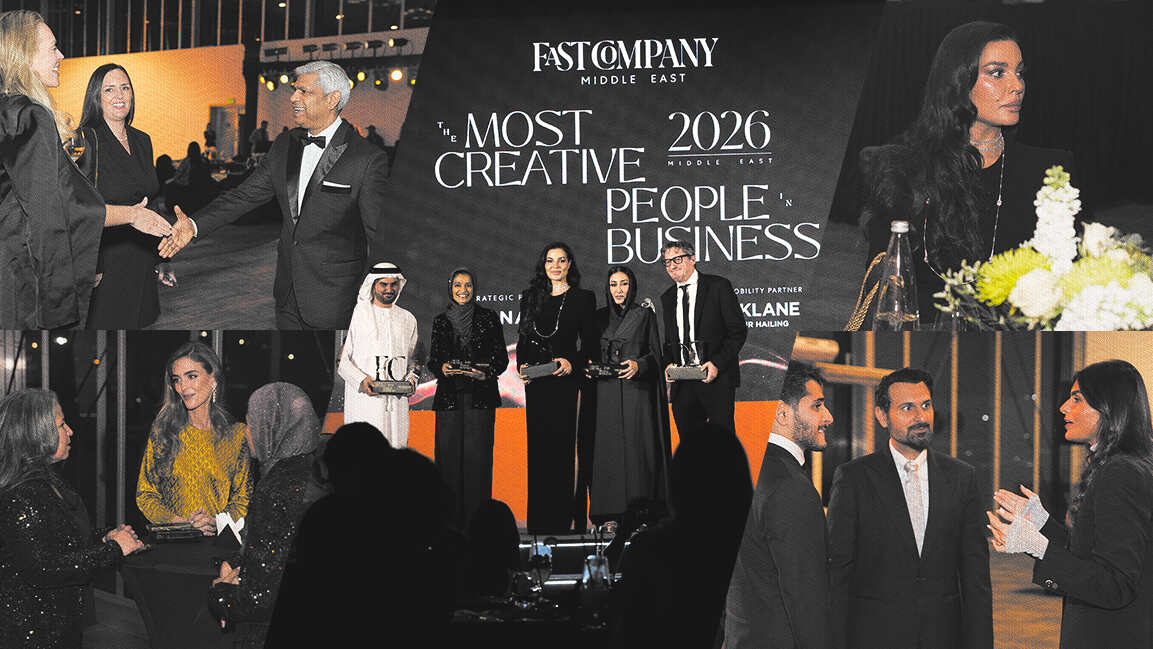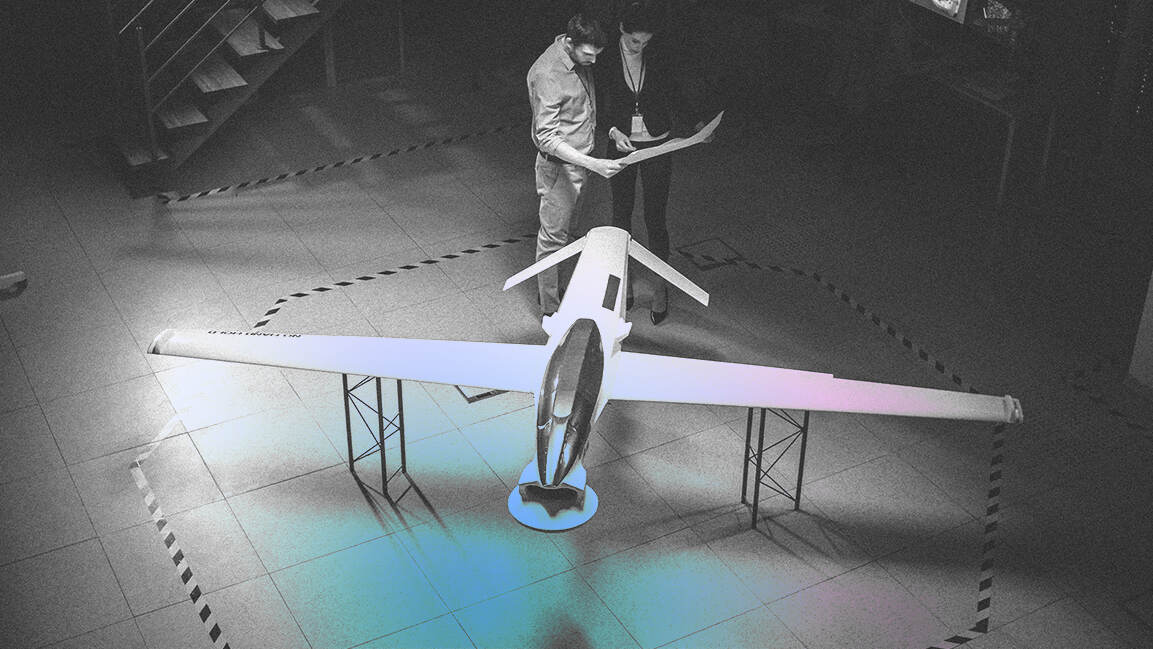- | 9:00 am
Can sustainable and innovative strategies define the future of hospitality in the Middle East?
Sustainability and innovation are driving the future of Middle Eastern hospitality by catering to modern travelers' personalized and eco-friendly preferences.

In 2023, the Middle Eastern hotel market defied expectations and emerged as the strongest in the world based on many key industry performance indicators. This resurgence is not merely due to pent-up demand but instead reflects a strategic shift aligning with the evolving preferences of today’s discerning traveler.
Recognizing the post-pandemic traveler’s desire for curated experiences and personalized service has been a focal point for the Middle East. But how can these shifts in customer preferences redefine the region’s hospitality industry in the next decade?
INNOVATION – THE ONLY STRATEGY
A remarkable wave of adaptability and creativity has swept through the global hospitality industry, particularly in response to the challenges posed by the COVID-19 pandemic. Phillip Jones, the Chief Tourism Officer at the Royal Commission for AlUla, emphasizes this trend, noting, “I am heartened to have observed many brands and properties embracing strategies that resonate with the evolving desires of modern travelers.”
In AlUla, the industry caters to niche travelers who seek authentic and sustainable experiences, offering immersive local encounters that deepen visitor engagement with the city’s culture and traditions. For example, hotels like Habitas AlUla and Banyan Tree AlUla provide enriching spa and wellness experiences rooted in local practices and products. These offerings enhance guest experiences through personal interaction and cultural discovery.
Jones emphasizes that sustainability is a key focus, with luxury resorts like The Chedi Hegra, AZULIK AlUla Resort, and the Sharaan Resorts prioritizing eco-conscious practices such as waste reduction, water conservation, renewable energy use, and sourcing local, organic building materials.
Aisha Al Matrooshi, National Experts Program Alumna & Tourism Sector Industry Development Section Head, Department of Culture and Tourism – Abu Dhabi, believes the industry interacts with visitors daily, creating an inevitable need to continually develop and embrace innovative techniques to meet guest demands and preferences. “From virtual tours to seamless check-ins and personalized reward programs, hotels remain well informed on emerging trends and technologies to maintain competitiveness and expand market share.”
She adds that the power of collaboration plays a crucial role in catering to tourist preferences. She believes it’s not just about convenience but also about creating a vibrant pre-flight destination, allowing travelers and their families to explore the diverse dining and retail experiences.
The hospitality industry has continuously adapted to meet evolving guest needs without sacrificing quality, aided by precise data for tailored services. Muzzammil Ahussain, Chief Executive Officer at Almosafer, believes that with unadulterated and often precise data, it has become even easier to customize services to meet the guest’s requirements.
He says, “Data analytics and AI have enabled us to automate and hyper-personalize travel itineraries and services based on customer preference.”
Businesses now provide a smooth booking experience through mobile apps, offering digital check-in and hyper-personalized on-location itineraries before guests arrive. With enhanced digital offerings, hotels cater to a wide range of travelers through experience-based options like unique local experiences, cultural tours, wellness retreats, and collaborations with local businesses, catering to every guest’s preference.
An interesting statistic pointed out by Ahussain was that Almosafer’s recently released Travel Trends showcase that more and more people prefer to book holidays on the go, whether through mobile apps, the web, or even WhatsApp.
WhatsApp bookings witnessed a 14% growth in volume in the first half of 2024 alone. The average booking window has decreased in 2024, indicating that unlike before, travelers are not willing to wait to go on that dream holiday but would instead embark on it now. Adopting more flexible booking and cancellation policies to accommodate changing travel plans will also go a long way toward enhancing the whole holiday experience for travelers.
RISE OF THE ECO-CONSCIOUS TRAVELER
Ahussain says sustainability is a key focus among global tourists, who are increasingly socially aware and actively seek destinations and brands that align with their eco-conscious lifestyles.
“Sustainability is a focal point of Saudi Arabia’s Vision 2030 with the Kingdom committed to clean energy and net zero future by 2060. Sustainable tourism initiatives that focus on urban greening while safeguarding endangered species and preserving the natural landscape of the kingdom are all geared towards balancing the current energy and climate crisis.”
For example, The Red Sea Development Project is fully committed to achieving 100% renewable energy for all resorts and infrastructure. They have adopted a zero-waste-to-landfill policy and implemented strict marine preservation measures. Using sustainable construction practices and eco-friendly materials demonstrates their comprehensive ESG strategy. Implementing smart destination management will significantly contribute to resource efficiency.
By developing carbon-neutral resorts and promoting biodiversity conservation, they have ensured that even as local tourism thrives, it will not be at the cost of the local environment or the people, he adds.
On the other hand, Jones’ approach to AlUla has been rooted in its commitment to sustainability from the outset, guided by the AlUla Sustainability Charter and the broader Saudi Green Initiative.
“This commitment permeates all aspects of our operations, from hotels to venues and more, incorporating multiple practices and initiatives to minimize environmental impact and promote sustainable development.”
AlUla’s infrastructure, including current and future hotels, prioritizes sustainability across various areas, such as water management, energy efficiency, and recycling. All development projects in AlUla adhere to strict environmental standards, aiming for certifications like Mostadam Gold or LEED Gold to set high sustainability benchmarks in hospitality.
For Al Matrooshi, the hospitality industry is making significant strides in sustainability through energy-efficient technologies such as water conservation, waste reduction, and sustainable sourcing.
Hotels are improving efficiency by switching to LEDs, which save 80-90% more energy than incandescent bulbs and 50-60% more than fluorescent lights. Smart building technology optimizes lighting and temperature based on occupancy, and many hotels are exploring renewable energy like solar panels. Water conservation efforts include low-flow fixtures, achieving 25-60% savings, and greywater recycling for irrigation and flushing, reducing water use and costs. Waste reduction initiatives involve eliminating single-use plastics, partnering with sustainable suppliers, sourcing in-room amenities from FSC-certified suppliers, and prioritizing locally sourced produce to cut carbon emissions.
WHAT CAN BUSINESSES DO?
Al Matrooshi says the hospitality sector significantly contributes to the global economy, accounting for 7.6% of the global GDP and 6% of the Middle East’s GDP.
With a projected annual growth rate of 5.1% from 2023 to 2033, the industry is set to outpace overall global economic growth, estimated at 2.6% annually.
Data indicates that most travelers seek deeper and more immersive experiences when exploring new destinations. “I foresee this becoming a significant growth area in the travel and tourism industry, as more travelers aspire to engage in unique activities that connect them to local history and culture.”
Abu Dhabi demonstrates this approach with numerous initiatives highlighting local culture and how increased tourism to the UAE brings greater attention to its cultural heritage.
For instance, instead of solely visiting Abu Dhabi’s major landmarks, such as the Sheikh Zayed Grand Mosque and the Louvre Abu Dhabi, visitors may also visit Qasr Al Hosn, Wahat Al Karama, and the forts in Al Ain and explore authentic Emirati cultural experiences, including visiting a local ranch, savoring a traditional meal or homemade Emirati breakfast with an Emirati, taking an Urban Treasure tour, and more, she adds.
Jones adds that the hospitality industry’s future will be largely shaped by its ability to leverage technology to enhance guest experiences, streamline operations, and add value to existing offerings. Maintaining adaptability will be key as the industry evolves, requiring businesses to scale their technological capabilities and adjust to dynamic market conditions.
To meet individual expectations, hospitality entities must offer highly customized services and recommendations. A growing trend is the rise of travelers embracing sustainable lifestyles and prioritizing mindfulness and wellness.
He emphasizes that the hospitality sector should integrate recycling programs, energy-efficient technologies, and holistic wellness activities to fully engage guests. Additionally, the industry is shifting towards experiential travel, where travelers seek unique, impactful experiences that create meaningful memories.
Personalization is also important to create connections with potential visitors, starting from their initial interactions with digital platforms or advertising. Jones emphasizes the significance of leveraging technology to shape the journey to AlUla, ensuring it is tailored to each individual before and during their stay. Echoing this sentiment, Ahussain highlights the role of data analytics and AI in crafting a bespoke guest experience.
By offering customized travel packages and services aligned with individual preferences, they collectively aim to enhance the overall experience for today’s modern traveler.
He also stresses the importance of businesses adopting agile strategies to swiftly adapt to dynamic market conditions. Today’s modern traveler seeks authentic, immersive local experiences, emphasizing the need for collaboration with local communities to offer sustainable tourism options.
Businesses must prioritize technology upgrades for contactless interactions and personalized services alongside data-driven decision-making tools to meet customer needs. Moreover, maintaining high standards of cleanliness and hygiene and offering wellness programs are crucial to meeting evolving consumer demands, he adds.
This year, Fast Company Middle East’s Impact Council Hospitality and Tourism Subcommittee will convene to explore what it takes to build an industry’s sustainable and innovative future. The subcommittee will focus on integrating eco-conscious practices, leveraging technology for personalized guest experiences, and enhancing operational efficiency.
Additionally, promoting local culture through immersive experiences and ensuring luxury aligns with sustainability will be crucial. These focal points aim to redefine hospitality standards, ensuring the industry thrives while meeting the modern traveler’s evolving preferences.







































